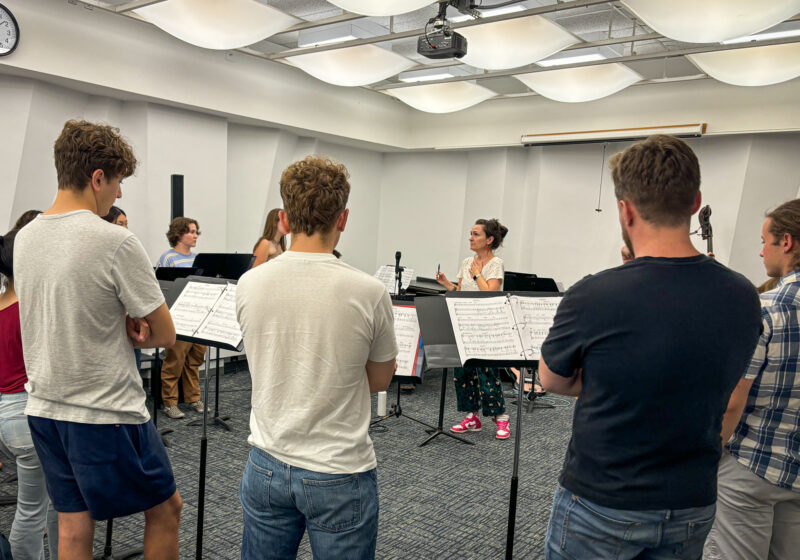My horseback riding instructor’s water broke when she was in the gym, and then she was in labor for hours upon hours before giving birth.
That’s the story she tells her female students, who in turn often reminisce about their own pregnancy stories.
Although I had heard this particular story many times over the years, it hit harder this past summer, when I realized that women my age get pregnant, go through labor, and give birth. I had never been inclined towards motherhood, but at this point my mind was made up: I never wanted to have children.
I’m not alone. According to Pew Research, 44% of childless American adults under age 50 say that it’s unlikely they’ll ever have children. Over half of these say that they simply do not want children.
Their reasons for not wanting children vary from health and financial concerns to the “state of the world.”. Personally, my career is more important than raising a child (and, of course, I have no desire to experience the pain of childbirth!).
Despite their perfectly valid reasons for not having kids, many childless adults feel pressured to become parents. Historically, motherhood has been perceived as a gateway to womanhood in the Western World, according to the National Library of Medicine. If a woman did not have children, she never really left girlhood.
Although today we are traveling away from this narrative, the pressure on women to have children remains.
Western society also places pressure on mothers to care for their children perfectly. The National Library of Medicine states that a mother is supposed to be completely devoted to her children, caring for them fully, and preparing them properly to live as a beneficial member of society.
For someone like me, who rejects the thought of having children some day, this feels entrapping. For other women, however, motherhood is their greatest dream.
Earlier this year, the New York Times released an article highlighting women who became mothers in their 40s. Many of these women had dreamed of becoming mothers since they were little girls, and were thrilled when they finally had children.
Brigitte McQueen, for example, had both wanted to be a mothers for decades before she had children. In her words, Ms. McQueen had “fought hard” to be able to have children.
Denise Shannon, another mother featured, did not want to have children until she met her wife, who did want children. They adopted a daughter, and even Ms. Shannon loved being a mother, saying that it was right where she needed to be. Still, the adoption required sacrifice. Focusing on their family required Ms. Shannon and her wife to give up seeking promotions at work.
This brings us to another point of pressure placed on women today.
Now that the playing field has been made more level and women are able to achieve many of the same things as men, women are not only pressured to have children and raise a family, but also to pursue higher education and a successful career. We are supposed to have it all, and love every minute of it.
Women who don’t are often judged – on both sides of the spectrum.
I can’t begin to count the number of times people have told me that I’ll make a great mother someday, or made an offhand comment loaded with the assumption that I will have kids.
On the flip side, many women who dream of being mothers are constantly told that that’s not what they’re supposed to do in this day and age, according to assistant professor of Brigham Young University Jenet Erickson.
Frankly, I think this is stupid.
Some women are going to choose to have children. Some won’t. Some will choose to focus on their careers, and others won’t. And that’s fine.
Let’s leave judgment at the back door and allow women to make their own choices.




